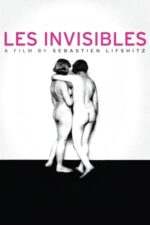Beyond the Binary: Exploring Sexuality On Screen (and Why It Matters)
Okay, let's talk about exploring sexuality in film. Not just depicting it – though that’s certainly been part of cinema’s history – but really exploring it. What does it mean to grapple with desire, identity, and connection when societal norms are stacked against you? It's a theme that has evolved dramatically over the decades, moving from coded subtext to increasingly nuanced portrayals, and I think it’s one of cinema’s most vital contributions to our understanding of ourselves.
For a long time, depictions of sexuality were… well, let’s just say limited by what was considered “acceptable.” Think about films like Good Luck, Miss Wyckoff. While groundbreaking for its time in addressing interracial relationships and hinting at repressed desires, the power dynamics are deeply troubling – a stark reminder of how societal constraints can warp even seemingly intimate connections. It's uncomfortable to watch, but it’s also a crucial historical document showing us what not to do when portraying complex emotions.
What I find fascinating is how filmmakers have increasingly moved beyond simply presenting sexuality as a plot device or a source of conflict. Look at Making Love, for example. The film isn't about the "shock" of Zach’s revelation; it's about the messy, heartbreaking process of reconciling that truth with his existing life and relationships. It’s not always pretty – there’s pain, confusion, and a lot of awkward conversations – but it feels real. It acknowledges that coming to terms with your sexuality isn't a neat narrative arc; it’s a lifelong journey.
Then you have films like Les Invisibles, which offer something profoundly different: a celebration of resilience and authenticity. These are stories from elders in the LGBTQ+ community who lived through decades of prejudice, yet chose to live openly and unapologetically. Their experiences highlight not just the personal struggles but also the societal progress we’ve made – and how much further we still have to go.
And it's not always about grand narratives. A Sweet Journey beautifully illustrates how intimacy and exploration can arise from unexpected places, even within long-standing friendships. It suggests that understanding ourselves and our desires is often a process of quiet reflection and shared vulnerability. Even the premise of Love, with its suggestion of spontaneous connection, hints at a desire to break free from rigid expectations about romance and pleasure.
Ultimately, films that genuinely explore sexuality aren’t just entertaining; they're catalysts for conversation, empathy, and self-discovery. They challenge us to question our assumptions, confront uncomfortable truths, and celebrate the beautiful diversity of human experience.
What film sparked your thinking about sexuality? I'd love to hear your thoughts!



































